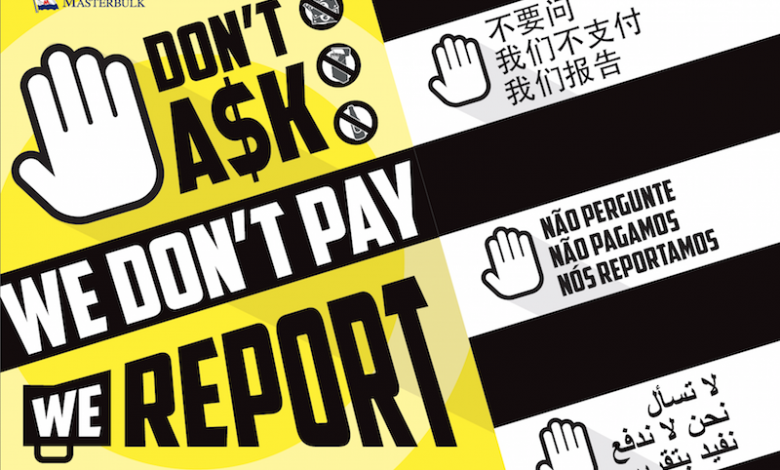Winds of change

Cecilia Müller Torbrand from the Maritime Anti-Corruption Network writes exclusively for Splash today.
The shipping industry is an amazing business. It’s global, diverse, impactful and yet almost completely anonymous to the people outside of the sector. Maritime transportation is one of the world’s first global industry and continues to play a crucial role in the global economy. The shipping industry helps to reduce trade barriers, which has a real impact on a country’s GDP and a business’s ability to grow through trade.
However, there are also challenges that are unique to this industry. Shipping companies have to operate in multiple jurisdictions all over the world. They have to comply with their domestic laws, the laws of the flag state, and the laws in the country where the ship is berthed. Shipping is also a conservative and competitive industry, and there is a reluctance to share best practices and openly discuss shared challenges. It is a risky business in the sense that regular interactions with authorities during port operations provide ample opportunities, on both sides (industry and government), for unethical behaviour.
While following the law may seem to be black or white—you do, or you don’t—it is the enforcement of laws that is often the biggest challenge. Shipping companies face issues with the wide discretionary powers held by port officials. This discretionary element makes it difficult to plan for port calls or to be fully compliant with relevant laws as the interpretation of these laws may change from one port call to another, and from one country to another. Port authorities having the power to interpret regulations differently or stay onboard searching every nut and bolt of the ship until they find a violation, is not the intent of these laws. But it has become the reality in many countries and is, unfortunately, steeped in corruption.
In the past, some port officials were paid by the ships and the tradition of providing some form of compensation is still strong in many countries and the practice goes well beyond shipping. In the past it was a gift, a need to ‘grease the wheel’, today we call it petty corruption. However, the acceptance that this practice is now illegal comes slowly to those accustomed to such payments, and in many cases this leads to tireless discussions with port officials who often threaten the ship and crew with expensive delays.
Fighting this practice, at head office, is referred to as anti-corruption compliance, improving ethical conduct, reducing trade barriers, or improving a working environment. However, on the ground, it is the captains who face the challenge of inconsistent enforcement and uncomfortable, or threatening, dialogue with port officials during what is an already stressful port operation. It is the captain who must explain the company’s anti-corruption policy; and, if the company does not have a policy against it, it is the captain who will negotiate the amount of cash, cigarettes, or alcohol to be ‘gifted’ as it effects the ship’s budget.
Managing these kinds of confrontations is challenging because it requires diplomacy as well as adept negotiation skills in potentially hostile circumstances. And if managed incorrectly, the consequences can be quite severe.
It is for these reasons that we should tackle corruption as an industry. We must support our captains and our frontline staff in the safe rejection of these demands. This is a founding principle of MACN and remains a top agenda item for MACN.
Fighting corruption is not unattainable. It can be done. We have done it in the Suez Canal, we have driven change in Argentina for the dry bulk sector, and we are making progress in Nigeria. And many captains welcome these initiatives to tackle these challenges.
We all must contribute to this journey: shipping companies, management, agents, cargo owners, captains, and authorities. But we can’t sit and wait for someone else to start or make excuses like “the world will never change” or “this is how things have always worked”. To create change we must act.
Through MACN, we are joining forces in the maritime field, despite being a diverse industry, despite being spread across the global, and despite being conservative and competitive.
We may have a long journey ahead and we will address these challenges port-by-port, but our futures of a corruption-free industry are on the horizon.
